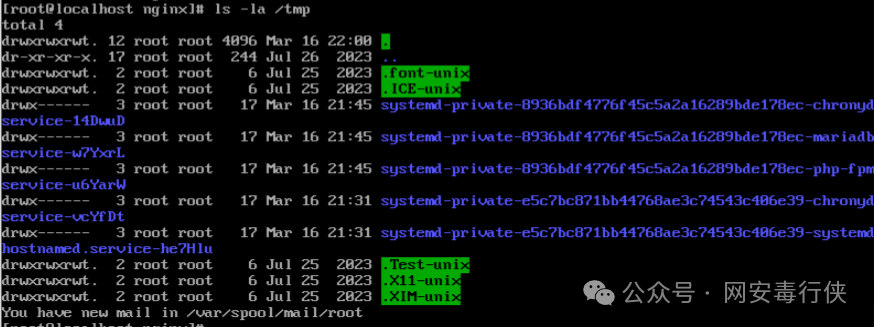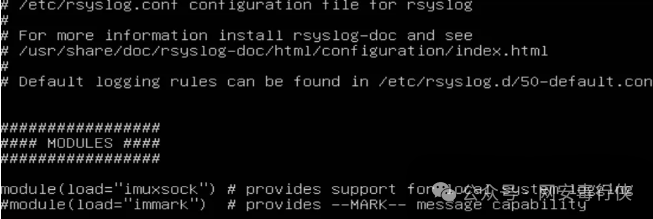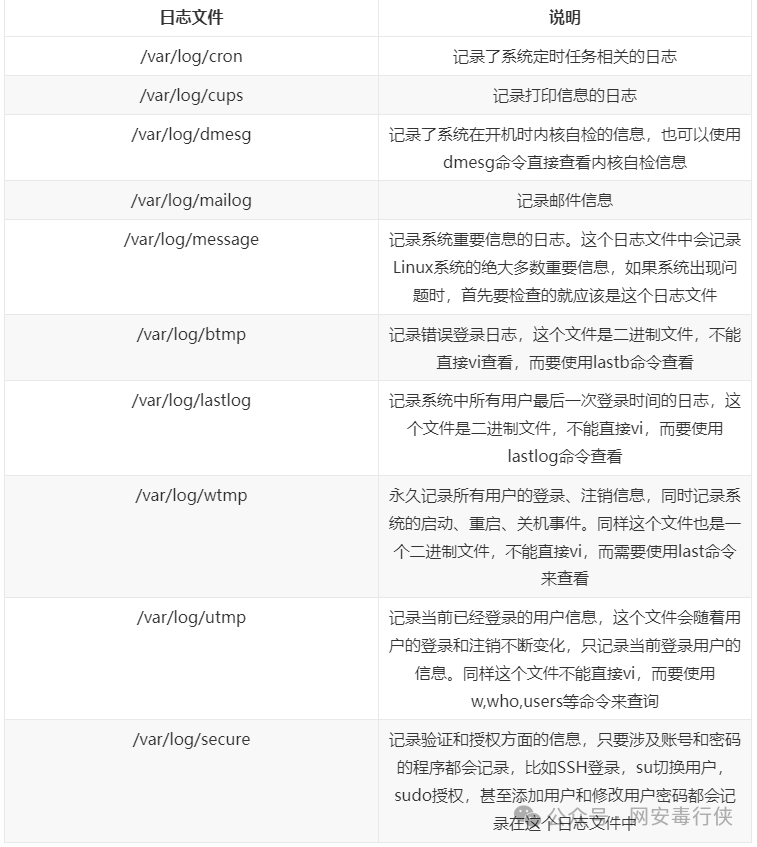When a company experiences a hacker intrusion; when the system crashes; when a security incident affects normal business operations, can you respond immediately and provide a solution? The following article will teach you the Linux emergency response process!

Intrusion Investigation Approach
01

Apache Log Path

Access Log:
/var/log/apache2/access.log (Debian/Ubuntu) or /var/log/httpd/access_log (CentOS/RHEL)

Nginx Log Path
Access Log:
/var/log/nginx/access.logApache Root Directory
Debian/Ubuntu (including Kali Linux):
/var/www/html/CentOS/RHEL:
/var/www/html/In Nginx the default root directory is usually:
Debian/Ubuntu systems: /var/www/html CentOS/RHEL systems: /usr/share/nginx/html
02

Detection & Analysis

System Status Check
Process Analysis
top -c # View processes with abnormal CPU/memory usage ps aux --sort=-%cpu # Sort processes by CPU usage pstree -p # View process tree to find abnormal parent-child relationships



Network Connection Analysis
netstat -antp | grep ESTABLISHED # View active connections lsof -i :suspicious_port # Locate the process listening on the port ss -tulwn # Replace netstat, show more detailed network information


User and Login Check
last -ai # View login records (focus on root user) grep "Accepted" /var/log/auth.log # Check SSH successful login logs cat /etc/passwd | grep -E "/bin/bash|/bin/sh" # Check loggable users

Username: Password: User ID: Group ID: User Description: Home Directory: Login Shell1. Query privileged users (uid is 0)
[root@localhost ~]# awk -F: '$3==0{print $1}' /etc/passwd;
2. Query accounts that can log in remotely
[root@localhost ~]# awk '/\$1|\$6/{print $1}' /etc/shadow3. Check if other accounts besides root have sudo privileges. If not needed for management, ordinary accounts should have sudo privileges removed.
[root@localhost ~]# more /etc/sudoers | grep -v "^#\|^$" | grep "ALL=(ALL)"4. Disable or delete unnecessary and suspicious accounts
usermod -L user Disable account, account cannot log in, /etc/shadow second column starts with ! userdel user Delete user userdel -r user Delete user and also remove the user directory under /home
File System Check
Sensitive File Scan
find / -name "*.php" -mtime -3 # Find PHP files modified in the last 3 days (WebShell) find / -perm -4000 -ls # Find SUID privilege escalation files grep -r "eval(base64_decode" /var/www/html # Scan for encrypted code in web directory
Hidden File Detection
ls -la /tmp # View hidden files in /tmp directory lsattr /suspicious_file # Check file hidden attributes (e.g., undeletable)

Log Analysis
System Logs
journalctl -u sshd # View SSH service logs tail -f /var/log/secure # Real-time monitor authentication logs


Terminate Malicious Processes
ps -aux # View processes kill -9 malicious_process_PID # Force terminate process systemctl stop malicious_service_name # Stop malicious service

Check Scheduled Tasks
1. Create scheduled tasks using crontab
crontab -l List detailed contents of a user's cron service

Check System Logs
Default log storage location: /var/log/ Check log configuration: more /etc/rsyslog.conf

